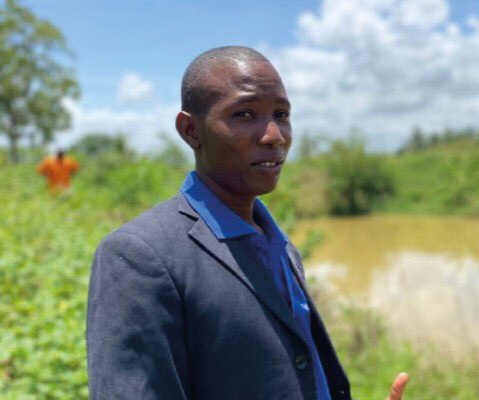Haller Foundation Partners Mara Phones to Boost Technology Accessibility in Rural Africa
The need for deeper telephone penetration especially in rural areas of Africa following the ongoing efforts towards acceleration of digital transformation across the continent has received a boost. As more companies and organisations than ever investing time, money and skills towards the goal Haller Foundation has entered into partnership with Africa’s first indigenous manufactured mobile phone, Mara.

This becomes even much more important with the effects of the worldwide COVID-19 pandemic.
According to the World Bank, Sub-Saharan Africa has been hit the hardest by the economic impact of COVID-19, with an estimated 23 million people in the region projected to be pushed into poverty by the pandemic.However, there are regions in Africa that this transformation has struggled to reach due to long histories of extensive digital exclusion from even before the pandemic. In these rural areas, the adoption of digital technologies and devices can make a tangible difference to the communities that inhabit them, especially through the sharing of educational material and digital infrastructure.
Read also:Nigeria’s Terragon Verified as Leader in Data and Marketing Technology
This is why the Kenya-based NGO and UK-founded charity, the Haller Foundation have launched the Haller Farmers App, a platform that leverages the ever-increasing availability of mobile connectivity in Africa to promote sustainable growth in rural communities and landscapes.
This is accomplished through the sharing of innovative and sustainable farming techniques needed to maximise food production and help build a thriving, self-sustaining community.
Within the App is 50+ years of local agricultural knowledge, with Haller describing the App as a “goldmine of information for smallholder farmers faced with the issues of climate change, land degradation and food insecurity.”
Read also:Vodacom Business Africa Goes Trans-Atlantic, Berths in South America
Haller says that all of the techniques demonstrated on the App are low cost and organic, meaning they can be readily transferred into routine farming practice.
Unfortunately, the rural communities that may need the App the most are also the communities most unlikely to have mobile technologies readily available. In order to combat this challenge, the Haller Foundation has partnered with Mara– the creators of the first high specification affordable smartphones manufactured in Africa.
Mara Phones focuses on creating inclusive employment for women and young people as well, helping to drive local economies. Now, through its partnership with Haller, and the donate a phone to a farmer scheme, Mara Phones’ affordable, high-tier smartphones are available to buy at a discounted rate of 10% simply by inputting the code ‘Haller‘ at checkout.
Read also:Why Mobile Technology is Important to Rural African Communities
Any phone that is purchased through the scheme and using the code is then sent straight to Haller’s offices in Mombasa, Kenya, where the Haller Farmers App is pre-downloaded. The device is then distributed as donations to Haller’s ambassadors and community members who have not yet had direct access to Africa’s latest technological advancements.
Kelechi Deca

Kelechi Deca has over two decades of media experience, he has traveled to over 77 countries reporting on multilateral development institutions, international business, trade, travels, culture, and diplomacy. He is also a petrol head with in-depth knowledge of automobiles and the auto industry





